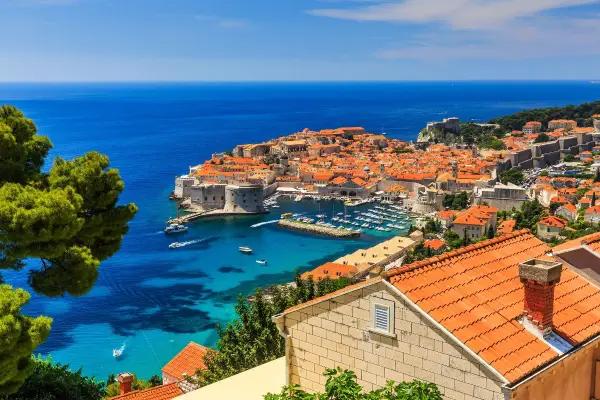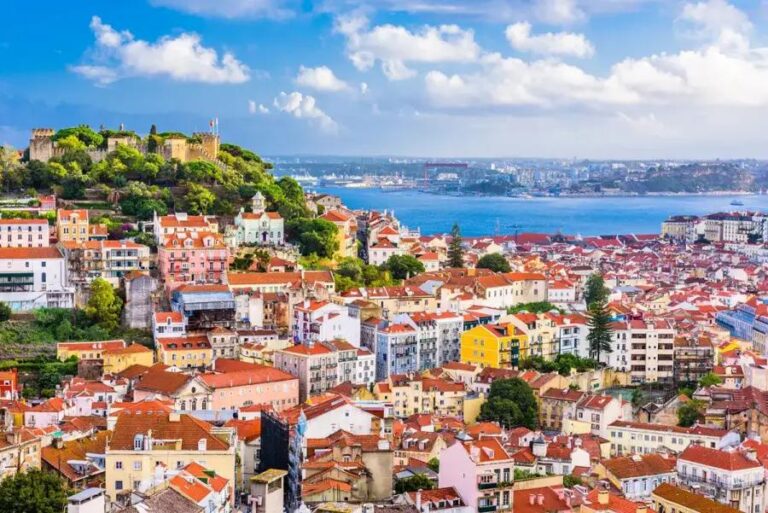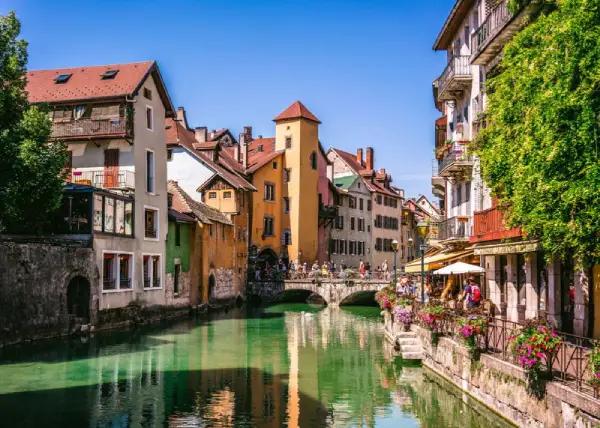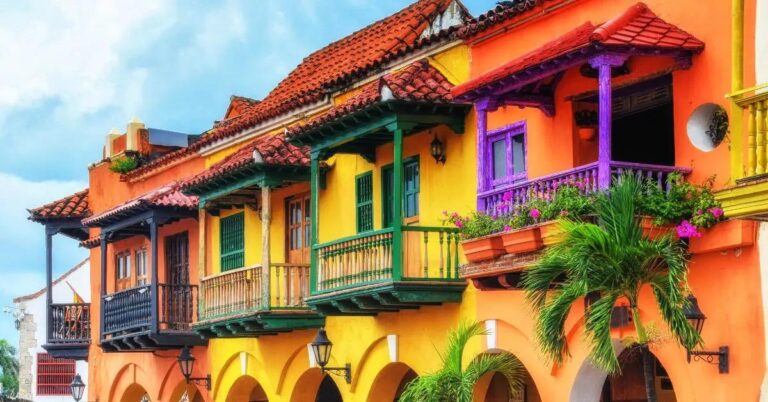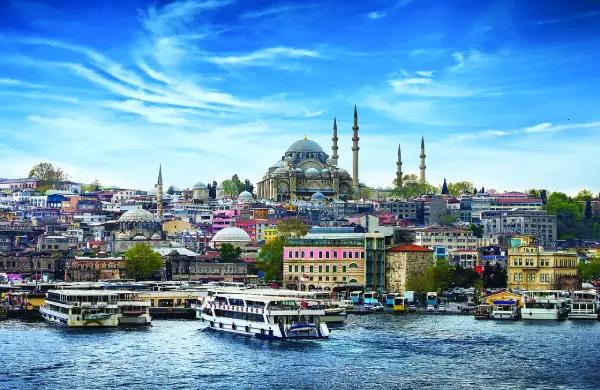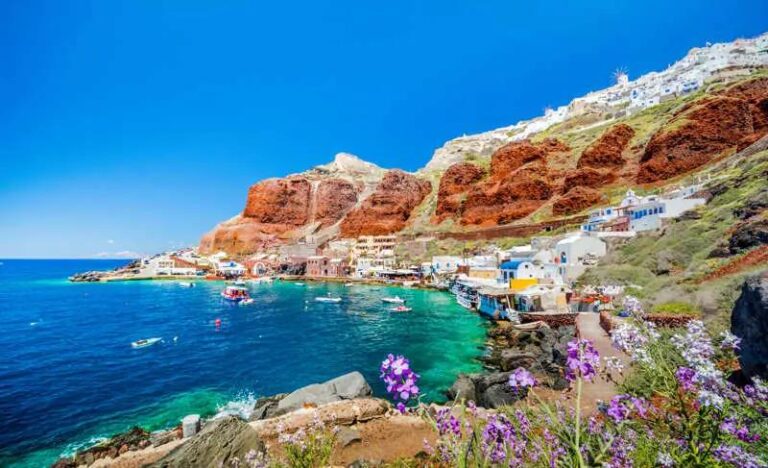TL;DR:
- Monthly Expenses: Retirees need around $1,200 to $1,500 per month.
- Rent: $300-$400 in smaller towns; $500 in Zagreb.
- Utilities: $100-$150; Internet/Phone: $25-$30.
- Groceries: $250-$300 per month.
- Transportation: Public pass ~$50/month.
- Dining Out: Meal ~$10-$15; ~$200 monthly for couples.
- Healthcare: Public healthcare affordable; private insurance optional.
- Taxes: US Social Security benefits not taxed; other incomes may be taxed.
- Visas: Start with a temporary stay permit; permanent residency after five years.
- Best Places: Coastal (Split, Zadar, Dubrovnik) for scenery; inland (Zagreb, Osijek) for lower costs.
- Lifestyle: High quality, senior discounts, vibrant social and cultural activities, active expat communities.
Are you dreaming of a serene and affordable retirement by the Adriatic Sea? “Cost of Living in Croatia for Retirees: Is It Affordable?” dives into the nitty-gritty of expenses you’ll face. From rent to healthcare, discover what your monthly budget might look like in this beautiful country. Let me guide you through the real costs, so you can plan a worry-free move to Croatia. Ready to explore your future?
What are the general living expenses in Croatia for retirees?
How much money do you need to retire in Croatia? Most retirees need around $1,200 to $1,500 per month.
Average Monthly Expenses
Monthly expenses can be split across several categories. The primary spending areas include rent, utilities, groceries, transportation, and dining out. Average retirees in Croatia live on a budget of around $1,200 to $1,500 monthly, depending on their lifestyle.
Rent and Housing Costs
Rent prices vary greatly by location. In Zagreb, you will find higher rents compared to smaller coastal towns like Dubrovnik. A one-bedroom apartment in Zagreb might cost around $500 per month. In smaller towns, expect to pay closer to $300 to $400 monthly.
Utility Bills
Utility bills, including electricity, water, and heating, generally range from $100 to $150 per month. Internet and mobile phone plans are affordable, costing about $25 to $30 monthly. Weather can impact these costs, so winter months might be more expensive.
Grocery Shopping and Market Prices
Groceries and market prices are quite reasonable in Croatia. Expect to spend around $250 to $300 per month on groceries. Fresh produce and local products are especially affordable. Weekly trips to the local market can help save money and support local farmers.
Transportation Costs
Public transportation is both efficient and affordable. A monthly public transport pass in a city like Zagreb costs around $50. However, retirees in smaller towns might prefer walking or biking, which reduces these costs. Owning a car can add insurance, fuel, and maintenance expenses.
Dining Out and Entertainment
Dining out and entertainment costs are quite lower compared to other European countries. A meal at a mid-range restaurant will cost about $10 to $15. For two people, dining out several times a month might cost around $200. Entertainment such as cinema tickets and small local events are equally affordable, costing just a few dollars.
In summary, Croatia offers a comfortable and affordable retirement. Knowing how much you expect to spend monthly helps in planning your retirement budget wisely. For further detail on living expenses, visit Numbeo’s cost of living comparison.
How Does Healthcare Work for Retirees in Croatia?
The healthcare system in Croatia has two main parts: public healthcare and private insurance. When you retire here, you can join the public healthcare system. It’s good and covers most medical needs at lower costs. You will pay monthly fees based on your retirement income.
Overview of Public Healthcare System
The public healthcare system in Croatia is reliable and funded by taxes. Once you register, you get access to hospitals, clinics, and doctors. You do not need to pay much for visits, tests, or treatments. The public system includes medical care, dental care, and prescription drugs. Many retirees find it helpful and affordable.
Options for Private Health Insurance
For extra comfort and faster care, you might want private health insurance. Private insurance in Croatia offers more choices and shorter wait times. You can see specialists quickly and avoid crowded public hospitals. Many insurance companies offer plans. Costs depend on your age and health needs. Consider both public and private options to see what fits best.
Prescription and Medication Costs
Prescription costs in Croatia are quite low in the public system. Medicines are often cheaper than in many other countries. If you have private insurance, you might get even lower prices. Always check which medicines are covered by your plan. Some drugs might need pre-approval from your doctor.
Access to Medical and Dental Care
Access to healthcare in Croatia is quite good, especially in larger cities. Doctors and dentists are very competent. Most towns have clinics and pharmacies. For specialized treatments, big cities offer more options. Dental care is also of high quality and much cheaper than in many Western countries.
Emergency Services
Emergency services in Croatia are efficient and prompt. Call 112 for urgent help. Public hospitals have emergency rooms ready for any crisis. Private hospitals also offer emergency services if you have private health insurance.
Retirees find healthcare in Croatia both accessible and reasonable. The mix of public and private options offers flexibility and quality care. This makes Croatia a solid choice for retirement health needs.
What are the housing options and costs for retirees in Croatia?
Rent prices in major cities and coastal areas: Croatia’s coastal cities like Split and Dubrovnik are more expensive. Rent prices in these cities can range from $400 to $1,000 per month for a one-bedroom apartment. Smaller coastal towns and inland cities like Zagreb offer lower rents, averaging around $300 to $600 per month for the same type of apartment.
Buying property in Croatia: procedures and costs: Buying a home in Croatia involves a few steps. First, you need to find a property. Then, you must hire a lawyer who will help you navigate the legal process and paperwork. Homeownership costs vary greatly by location. A small apartment in a major city can cost between $100,000 and $200,000. In a coastal town, prices may range from $150,000 to $300,000.
Affordable housing options: There are affordable housing options, especially if you’re open to living outside major cities. Smaller towns and rural areas offer more budget-friendly choices. Finding properties for rent or purchase in these areas requires some local help. Online listings are a good start, but visiting and talking to the locals is even better.
Pros and cons of renting vs buying: Renting in Croatia offers flexibility and fewer responsibilities. You do not have to worry about maintenance or repairs. Renting is ideal if you plan to stay short-term or try out different cities. Buying a home provides more stability and can be an investment. However, it comes with extra costs like property tax, home insurance, and maintenance.
Utility and maintenance costs: Utility costs in Croatia are reasonable. Expect to pay around $100 to $150 monthly for electricity, heating, cooling, water, and garbage. Maintenance costs for homeowners can vary. Routine upkeep will generally cost an additional $50 to $100 each month.
In summary, Croatia offers a range of housing options for retirees. Whether renting or buying, you should weigh your needs and budget carefully.
How Do Retirees Manage Their Finances in Croatia?
Does Croatia tax US social security benefits? No, Croatia does not tax US social security benefits. This is great news for retirees from the US looking to stretch their savings. However, you must declare the income to Croatian authorities. Other retirement incomes like pensions or investment returns may be taxed, so proper financial planning for retirement is key.
How much money do you need to retire in Croatia? It depends on your lifestyle. For a modest life, $2,000 per month can be enough. This covers housing, food, and basic entertainment. Plan for extras like travel or hobbies to ensure you live comfortably.
Tax Obligations for Foreign Retirees
Foreign retirees need to understand their tax obligations. Croatia has tax treaties with many countries to prevent double taxation. Always check Croatia’s Tax Agency for current tax rules and rates. It’s wise to consult a tax advisor to ensure you’re compliant and informed.
Financial Planning and Budgeting Tips
Creating a budget is vital. Start by listing all your income sources and regular expenses. This helps you see where your money goes. Look for ways to cut unnecessary costs. Open a local bank account to avoid high currency exchange fees. Regularly review and adjust your budget to stay on track.
Banking System and Currency Exchange
Croatia’s banking system is sound and reliable. Major banks offer various services, including online banking in English. When it comes to currency exchange, Croatia uses the euro. Avoid airport exchanges due to high fees. Utilize local banks or currency exchange offices for better rates.
Managing Retirement Income
Direct deposit your retirement income to your Croatian bank account. This is the simplest way to manage funds. Many banks offer special accounts for retirees, with lower fees and perks. Keep some savings in your home country to cover unexpected needs or investments.
Investment Opportunities
Croatia offers different investment opportunities for retirees. Real estate is popular, especially in coastal areas. Another option is local bonds, which have low risk and steady returns. Before investing, consult with a financial advisor to understand the risks and benefits.
What lifestyle and recreational activities are available for retirees in Croatia?
Quality of Life and Cultural Integration
Retiring in Croatia offers a high quality of life. You can enjoy a peaceful lifestyle with a stunning Adriatic backdrop. Integration into the local culture is easy. Croatians are welcoming, and many speak English. You can feel at home without much effort.
Popular Recreational Activities and Fitness Options
Croatia is perfect for active retirees. Hiking, cycling, and swimming are favorite activities. The landscape is diverse, from mountains to beaches. National parks are ideal for day trips. If you prefer indoor activities, many gyms and fitness centers are available. Yoga and Pilates classes are common.
Senior Discounts and Special Services
Senior discounts are widespread in Croatia. Retirees can save on public transport, event tickets, and museum entries. Many local businesses and restaurants offer special deals for seniors. These discounts help manage the cost of recreation in Croatia.
Social and Expat Communities
Social life in Croatia is vibrant. Many retirees join expat communities. These groups host regular gatherings, making it easy to make friends. Locals are friendly and love socializing. Cafes and bars are popular meeting spots. You will never feel lonely or out of place here.
Cultural Events and Activities
Croatia is rich in culture. Festivals, concerts, and art exhibitions are frequent. Each region has unique traditions and events. Dubrovnik hosts the famous Summer Festival, and Split celebrates Ultra Europe. Wine and olive oil tastings are common culinary activities.
In summary, you will indeed enjoy retirement in Croatia. The mix of recreational activities, social opportunities, and cultural events can provide an enriching and fulfilling lifestyle. Whether you prefer outdoor adventures or cultural experiences, Croatia has something for every retiree.
What are the visa and residency requirements for retirees in Croatia?
Many retirees dream of living in Croatia, but understanding the visa and residency requirements is key. So, what do you need to retire in Croatia? Firstly, let’s tackle the Croatia retirement visa requirements.
Types of Visas and Eligibility
Retirees usually start with a temporary stay permit. This visa allows you to live in Croatia for up to a year. You can extend this permit annually. To be eligible, you must prove sufficient income and health insurance.
Can a US citizen retire to Croatia? Yes, they can. American retirees need to apply for a visa before moving. This process happens at a Croatian embassy in the U.S.
Residency Permit Process
After living in Croatia on a visa for about five years, you become eligible for permanent residency. Permanent residents enjoy more benefits, such as easier travel within the European Union.
The application involves multiple steps. Gather necessary documents, submit forms, and attend interviews. These steps ensure you meet all legal requirements for retirees.
Legal Requirements for Retirees
Proof of financial stability is crucial. You must show regular income or sufficient savings. Health insurance, valid for all of Croatia, is also mandatory.
Important Documentation and Fees
When applying for a residency permit, have these documents ready:
- Valid passport.
- Proof of health insurance.
- Proof of income or savings.
- Clean criminal record.
- Completed application forms.
Expect some fees for processing, around €70 to €150.
Tips for a Smooth Transition
To ensure a smooth transition, start early. The paperwork can take months. Get help from a legal expert in Croatia who specializes in visas. They can guide you through the entire process, ensuring you meet all requirements.
Careful planning will make your move to Croatia simpler and stress-free.
What is the Best Place to Retire in Croatia?
When it comes to retiring in Croatia, the choice of location is key. So, where are the best spots?
Living in Coastal Towns vs Inland Cities
Coastal towns like Split, Zadar, and Dubrovnik offer stunning views and beaches. You can spend your days enjoying the sea and sun. These areas also have a mild climate, making them comfortable year-round. However, be ready for tourist crowds in peak seasons.
Inland cities such as Zagreb, the capital, or Osijek, provide a different vibe. You get a break from the busy coastal hubs but still enjoy excellent amenities. Costs tend to be lower inland, making these areas budget-friendly.
Comparison of Popular Retirement Locations
Split is perfect if you love historic charm and Mediterranean cuisine. Dubrovnik offers a similar vibe but is pricier due to its fame and influx of tourists. Zadar provides a balance with fewer crowds and more affordable living.
Zagreb, being the capital, is a bustling hub with all modern comforts. It’s culturally rich with museums, theaters, and events. On the other hand, Osijek gives you a quieter city life but with all the essentials close by.
Cost of Living Differences Between Cities
How much money do you need to live comfortably in Croatia? The prices vary by location. Coastal cities like Dubrovnik and Split are more expensive than inland cities like Zagreb or Osijek.
For example, renting a one-bedroom apartment in Dubrovnik might cost you around $800 per month, while in Zagreb, it could be as low as $500. Eating out, groceries, and transportation follow the same pattern, with coastal cities typically costing more.
Finding the Best Place Based on Personal Preferences
Do you love the sea or prefer a quieter city life? Your choice depends on your lifestyle. If you prefer serenity, inland cities are your best bet. But if the sea calls to you, then coastal towns are where you should be.
Benefits of Each Location for Retirees
In coastal towns, you gain the relaxing beach lifestyle and vibrant community. Health facilities are excellent, especially for those with health concerns.
In inland cities, the lower cost of living allows your retirement savings to stretch further. Plus, there are plenty of cultural activities and quiet neighborhoods.
Making the move to Croatia easy depends on just what you’re looking for. Whether you crave the bustle of the capital or the quiet charm of a coastal town, Croatia offers a bit of everything.
Conclusion
Living in Croatia as a retiree can be affordable and enriching. With a mix of coastal and inland options, diverse lifestyle activities, and manageable healthcare and housing costs, Croatia offers something for everyone. Keep a close eye on your budget, explore the best living places, and ensure you meet visa and residency requirements. Enjoy your retirement by diving into Croatia’s rich culture and vibrant social scene.

